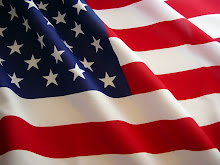One may easily argue that the Islam religion is one of the last things to come to mind when mentioning the mainstream hip-hop movement. This popular culture phenomenon has become categorized and stereotyped as a genre for African Americans, gang promotion, arms and violence, money and accessories, and degrading women. However, a wide majority of mainstream rappers consider themselves Muslim. While some rappers’ behavior and legitimacy in the Islam community are questioned, particularly due to their religious/denominational beliefs grounded in The Nation of Gods And Earths, their lyrics and identity as a Muslim shed diversity on the American entertainment’s stereotypical Muslim. This article will address the similarities and differences between traditional Islam and The Nation Of Gods And Earths, how they are portrayed through an artist’s lyrics, and how these individuals challenge the synonymous relation between Arab and Muslim.

Clarence Smith founded The Nation of Gods And Earths (NGE), also referred to as The Five Percentage Nation of Islam, in 1964 in Harlem New York. His teachings promoted the original Blackman as God, and the original Blackwomen as planet Earth: allowing any individual to transform and possess their true potential. Ultimately, followers may come to view themselves as their own god. The beliefs and teachings of The Nation of Gods And Earths is typically passed through oral tradition, following a universal language comprised of supreme mathematics and the supreme alphabet. Despite these differences from traditional Islam, NGE shares numerous beliefs with Islam, such as refraining from drinking, promoting community and family, and following life rules of peace.
As mentioned, a wide array of famous rap artists identify as Muslim and/or as part of the NGE. Ice Cube, Ghostface Killah, Busta Rhymes, Q-Tip, Beanie Sigel, Mos Def, and Lupe Fiasco are prominent artists in the hip-hop community who openly acknowledge their religious beliefs publicly and lyrically. In “Muhammad Talks” Lupe Fiasco states, “In the Quran they call him Isa…Don't think Osama and sadaam are is our leada…We pray for peace”. Busta Rhymes quotes part of the Quran in “Arab money” singing, “La ilaha illa Allah, ha la ili, hay yo…Hili b’Allah, hey hili bay yo…We getting Arab money”. Incorporating Islamic culture into a growing musical medium challenges and reshapes American official culture towards Islam, by providing definitions of ideals such as patriotism, loyalty, and boundaries and belonging.
The majority of the aforementioned artists are African American, debunking assumed parallels between Muslims and Arabs. By openly identifying as Muslim, the American entertainment industry and the American public may begin to see that not all Muslims are Arabs, and not all Arabs are Muslim. Although certain rappers have changed their names to adapt to the hip-hop world (Lupe Fiasco is actually Wasalu Muhammad Jaco) they still convey an image and message of Islam. This further exemplifies the diversity of the Islamic culture and the ability to be rooted in Middle Eastern, Southeast Asian, or African American ways of life.

No comments:
Post a Comment